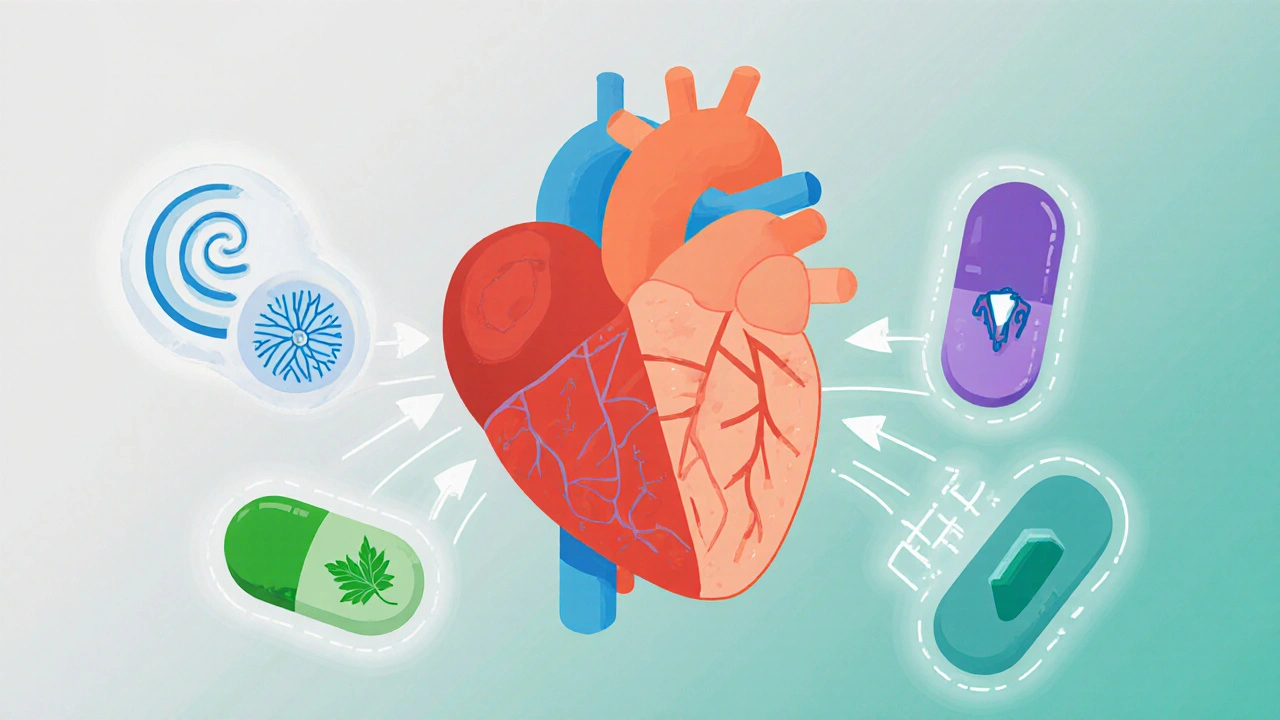Angina Drug Alternatives: What Works When Nitroglycerin Isn’t Enough
Got chest pain that feels like a tight band around your heart? Most people reach for nitroglycerin first, but it isn’t the only game‑changer. Whether you can’t tolerate the spray, need long‑term control, or just want a cheaper option, there are several alternatives worth exploring.
Prescription Picks That Replace or Add to Nitroglycerin
Beta‑blockers such as metoprolol and atenolol slow your heart rate and cut down the oxygen demand. They’re especially good if you also have high blood pressure or a past heart attack. Side effects can include fatigue or a slower pulse, so talk to your doctor about the right dose.
Calcium‑channel blockers (amlodipine, diltiazem) widen the arteries and improve blood flow. They work well if you experience angina during exercise. Watch for ankle swelling or a slight headache, which are common but usually manageable.
Ranolazine is a newer option that helps the heart use energy more efficiently. It doesn’t affect blood pressure, making it a solid add‑on if other meds aren’t enough. Some users report dizziness, so start low and increase slowly under medical guidance.
Ivabradine targets the heart’s pacemaker cells, lowering heart rate without changing blood pressure. It can be a lifesaver for patients who can’t tolerate beta‑blockers. The main drawback is occasional visual flashes, which are harmless for most people.
Non‑Prescription Strategies to Ease Chest Pain
Medication isn’t the whole story. Exercise—even a short walk—improves circulation and can reduce the frequency of angina attacks. Aim for 30 minutes most days, but check with your cardiologist before starting a new routine.
Eating a heart‑healthy diet (lots of veggies, whole grains, lean protein) cuts the workload on your heart. Limit salty foods, saturated fats, and sugary drinks to keep blood pressure and cholesterol in check.
Stress management matters, too. Techniques like deep‑breathing, meditation, or yoga lower adrenaline spikes that can trigger chest pain. Even a five‑minute breathing break can calm your heart before it tightens.
Some people find supplements such as magnesium, omega‑3 fish oil, or coenzyme Q10 helpful. The research is mixed, but they’re generally safe when taken at recommended doses. Always ask your doctor before adding any supplement.
Finally, keep a symptom diary. Note when pain occurs, what you were doing, and what helped. This record gives your doctor concrete data to fine‑tune your treatment plan.
Choosing the right angina drug alternative isn’t a one‑size‑fits‑all decision. It depends on your overall health, existing conditions, and how you respond to each medication. Start a conversation with your healthcare provider, bring your symptom diary, and discuss both prescription and lifestyle options.
Remember, the goal is to keep your heart happy and your chest pain under control without sacrificing quality of life. With the right mix of meds, diet, and habits, many people find relief far beyond the classic nitroglycerin spray.
Diltiazem vs. Alternatives: Which Heart Medication Fits You Best?
by philip onyeaka Oct 1 2025 13 MedicationsA detailed comparison of diltiazem with verapamil, amlodipine, metoprolol, and lisinopril, covering uses, side effects, cost, and how to choose the best heart medication.
READ MORE
